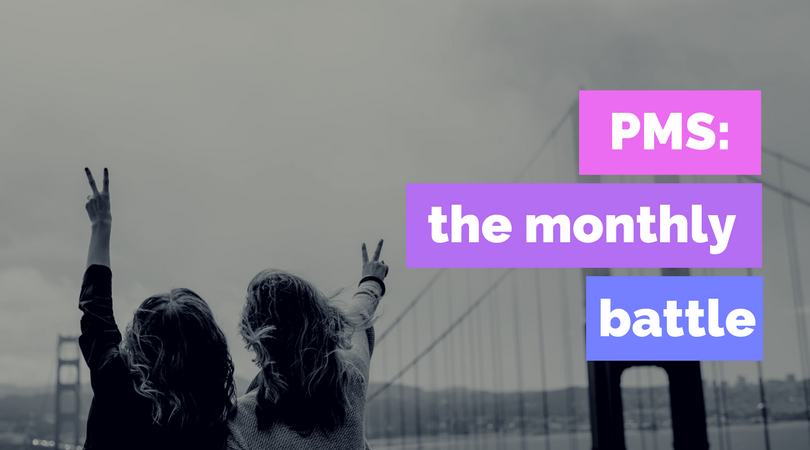
Hot Flashes and Beyond: Surviving and Thriving in Menopause

*Collaborative Post
Each woman has to go through the natural phases of puberty when they begin their menstrual cycles and then later on in life when their hormones change and these menstrual cycles become more irregular and eventually stop; the menopause.
Even though this is a natural process it can be a challenging one too. Symptoms can vary from person to person but there is one that is probably more well-known than others… Hot flashes, also known as night sweats, are the most common yet quite uncomfortable symptom of Menopause and also perimenopause. These can unfortunately last for years and are known for taking you from a normal temperature to a raging one in a minute to 5 leaving you sweaty and your heart beating faster. Let’s take a look at surviving through hot flashes:
The Biological Reason Behind Hot Flashes
The primary reason why a woman stops getting her menstrual cycles is because of a decrease in the level of estrogen and progesterone hormones. When a girl starts getting her menstrual cycles, the ovaries eject eggs every month. The eggs start to decrease gradually when she approaches her late 30s or early 40s.
As a result, the ovaries lose the ability to follow the hormonal signals generated by the pituitary gland in the brain, which controls the menstrual cycle leading to a decrease in estrogen-progesterone levels. The decline in the estrogen level affects the hypothalamus (the part of the brain responsible for regulating body temperature), becoming more sensitive to minor temperature changes, which in turn can lead to rapid fluctuations in body temperature, thereby resulting in hot flashes.
You are not alone in this journey. There are thousands of women who are going through or have gone through menopause, and there are resources available to help you thrive during this time. For instance, Simply Menopause is one such platform where you can find information, treatment, risks, and everything else related to menopause.
Surviving The Heat: Coping with Hot Flashes
The symptoms of menopause include symptoms ranging from basic mood swings to vaginal dryness, depression, hot flashes, and much more. Which ones you suffer from will totally depend on you and your body type on how you deal with the symptoms.
Dealing with hot flashes is pretty stressful and uncomfortable, however, there are ways that you can adapt in order to cope with them. Below they are:
Staying Hydrated
Water is essential and is the most powerful drink. Consume water a little more during this phase as it helps regulate body temperature and reduces the intensity of hot flashes, you will still have them, but it’ll hopefully feel a bit easier for you to deal with them.
Dressing Smart
Wearing lightweight dresses and breathable fabrics such as cotton and linen will allow the body to quickly adapt to temperature changes. Avoid wearing clothes that are heavy in design or are difficult to carry. Layers can also be beneficial as this will allow you to strip off easily when out and about.
Managing Stress
Engaging in practices that keep you relaxed, for instance, yoga, meditation, or deep breathing exercises can all help you to cope with stress and relieve you of clustered thinking by keeping your mind at peace (at least to a certain level).
Avoiding Triggers
You should avoid consuming spicy food, alcohol, or caffeine as they are likely to trigger hot flashes a little more frequently and are rumored to make your menopausal phase worse.
It is also advisable to quit smoking! As the pack of cigarettes suggests, they are injurious to your health, not just during menopause but in general.
Prioritizing Self-care
One should always prioritize self-care, especially when you’re going through a crucial stage. Exercising regularly, maintaining a balanced diet, having proper sleep, and going for routine checkups may lessen the impact of menopause.
Seeking Support
It’s okay to talk about what you are going through. In fact, talking to women who belong to the same age group may even be beneficial as they are likely to share their experiences and give you some much-needed tips to deal with the symptoms.
If you’re facing any kind of difficulty, you may want to pay a visit to your doctor and let them know what you’re going through so they can tell you how and what could be done to help.
Strengthening Your Pelvic Bones
The decrease in estrogen and progesterone levels may weaken your bones. Switch to exercises that can keep your bones healthy. Do not go for exercises that involve extreme pressure on any part of your body; it should be limited to keeping your bones healthy.
Conclusion
Menopause is not a disease; it’s a natural transformation of a woman’s body, however, you must be aware of the changes your body will be going through during this phase. This will allow you to cope with the symptoms more efficiently.
Sometimes, it may happen that you might not feel the symptoms at all, or at times you’ll be frustrated by the changes and mood swings you’ve to deal with. It totally depends on you and your body.
Being aware and taking care of yourself is the key when it comes to surviving through hot flashes.
*This is a collaborative post. For further information please refer to my disclosure page.
If you enjoyed this post you can follow more of our life, opinions and antics over on Facebook, Twitter, YouTube and Instagram. Plus feel free to come and join in with my parenting group ‘From One Parent to Another’ on Facebook.
If you’d like to contact me you can either leave me a comment or drop me a line via my contact me page.
For other topics similar to this one check out these suggestions below…




